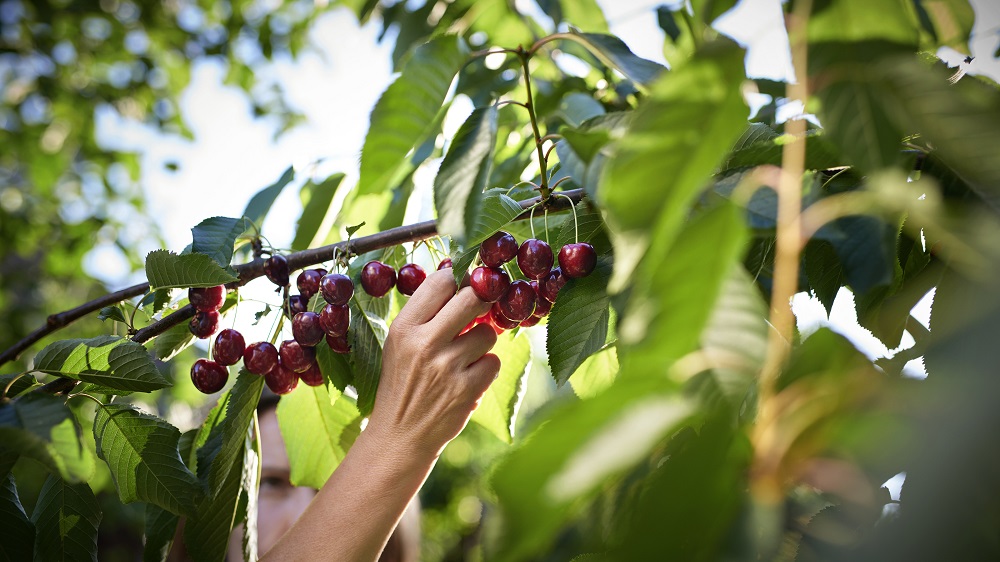Cultivating a Bountiful Soft Fruit Garden in the UK: Your Detailed Guide

Introduction
Imagine stepping into your garden and plucking sun-ripened strawberries, juicy raspberries, succulent blackberries, or tangy currants straight from the vine. Growing your own soft fruits in the UK can be a delightful and gratifying experience. With expert advice, careful planning, and attention to detail, you can create a flourishing soft fruit garden that yields mouthwatering rewards. In this comprehensive guide, we’ll explore the essentials of cultivating soft fruits, sharing tips and tricks to ensure a successful harvest.
Selecting Your Soft Fruit Varieties
Choosing the right soft fruit varieties can make all the difference in the success of your garden. For the UK climate, consider popular options like the ‘Polka’ strawberry, the ‘Tulameen’ raspberry, and the ‘Loch Ness’ blackberry. Each of these varieties boasts high yields and resilience in UK weather conditions. Be sure to research and select varieties that are known to prosper in your specific region.
If you have limited space, fear not! Dwarf or compact varieties of strawberries, raspberries, blackberries, and currants are ideal for smaller gardens or container planting. These plants are specifically bred for their compact nature and adaptability in confined spaces.
Making the Most of Small Spaces
Even with limited space, you can still create a thriving soft fruit garden by employing clever planting techniques. Raised beds or containers offer greater control over soil quality and drainage, ensuring your plants have the best environment to grow. Soft fruits require well-draining soil to prevent waterlogged roots.
Vertical gardening is another space-saving method. Train raspberries and blackberries to grow up trellises, or plant strawberries in vertical garden systems or hanging baskets. Not only does this maximize space, but it also helps prevent the spread of pests and diseases by promoting air circulation and making it more challenging for pests to access your plants.
Finding the Perfect Planting Site
To set your soft fruit garden up for success, choose a site with ample sunlight and well-draining soil. Soft fruits require at least six hours of direct sunlight per day, so make sure your chosen site can accommodate their needs. Amend the soil with organic matter like compost or well-rotted manure to improve drainage if necessary.
Proper plant spacing is crucial to allow for adequate air circulation and growth, which helps prevent the spread of pests and diseases. Always follow the recommended spacing guidelines for each variety when planting your soft fruit garden.
Safeguarding Your Soft Fruit Plants
Protecting your plants from pests and diseases is vital for a thriving soft fruit garden. Select resistant varieties and adopt proper cultural practices, such as pruning and appropriate watering. Apply suitable pesticides and fungicides as needed, and regularly inspect your plants for any signs of issues.
Maintaining a clean and healthy growing environment is key to success. Remove fallen fruit, leaves, or debris that could harbor pests or diseases, and practice good garden hygiene, such as disinfecting pruning tools.
Expert Insight from Chris Bowers & Sons
We consulted with apple trees sale specialists, like ChrisBowers , a Norfolk based fruit tree nursery to ensure the best possible advice for growing soft fruits in the UK. Their expertise highlights the importance of choosing suitable varieties, selecting the ideal planting site, protecting plants from pests and diseases, and providing proper care and attention.
Caring for Your Soft Fruit Garden
A successful soft fruit garden requires consistent care. Regular watering is essential, especially during dry spells or when plants are fruiting. Overwatering causes root rot and other problems.
Fertilize your soft fruit plants with a balanced, slow-release fertilizer, applying it in early spring and throughout the growing season as needed.
Pruning is a critical aspect of soft fruit plant care, as it helps maintain plant size, shape, and encourages higher yields and better fruit quality. For optimal results, learn the specific pruning requirements for each variety in your garden and follow expert guidelines to ensure you’re trimming your plants effectively.
The Joy of Harvest Time
There’s nothing quite like the taste of freshly picked fruit from your own garden. To enjoy your soft fruits at their peak, harvest them when they’re ripe, plump, and fully coloured. Gently pull or twist the fruits, being careful not to damage the plant or bruise the fruit.
Each soft fruit variety has its own harvesting window, so keep track of when each type should be ready to pick. Strawberries are generally ready to harvest around 30 days after flowering, while raspberries, blackberries, and currants ripen between late summer and early autumn. However, harvest times can vary depending on the specific variety and local weather conditions.
Preserving and Storing Your Soft Fruits
Soft fruits can spoil quickly, so it’s essential to store them properly to prolong their freshness. Keep your harvested fruits in a cool, dark place or refrigerate them in a shallow container. For best quality, consume or process your soft fruits within a few days of picking.
For longer-term storage, consider freezing or preserving your soft fruits in jams, jellies, or compotes. This allows you to savour their delightful flavours all year long and makes for a thoughtful homemade gift for family and friends.
Conclusion
Growing your own soft fruits in the UK can be an immensely fulfilling and delicious endeavour. By selecting suitable varieties, utilizing clever planting techniques, and providing ongoing care and attention, you can cultivate a flourishing soft fruit garden that yields an abundance of flavourful fruits. This comprehensive guide, along with expert advice, will help you navigate the path to a successful and bountiful soft fruit harvest.






